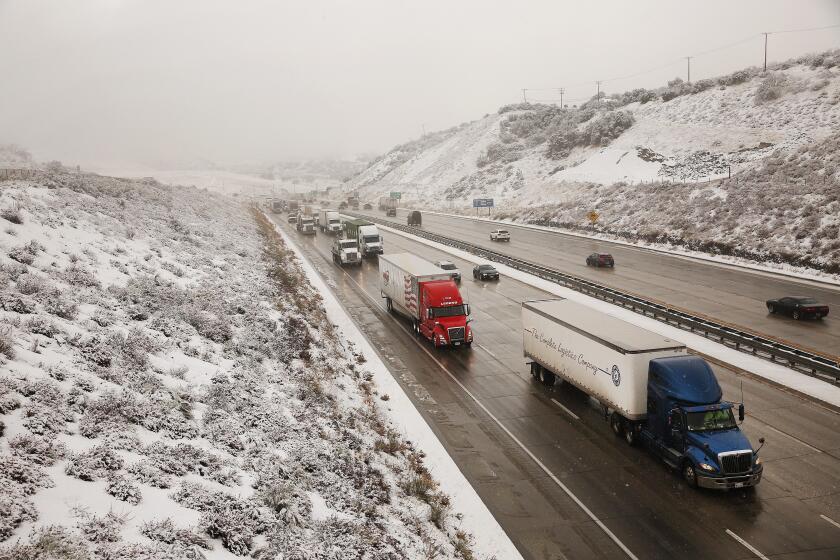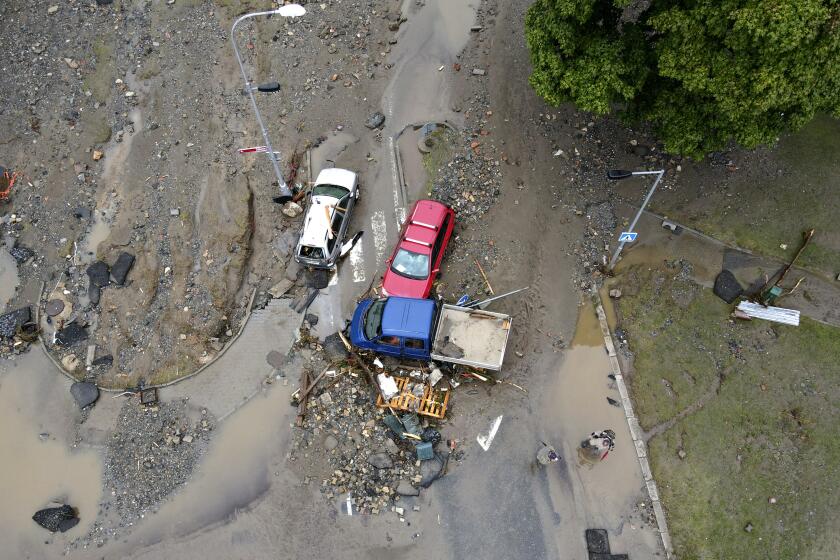Lawmakers Agree on Long-Stalled Road, Transit Bill
After nearly two years of political gridlock, congressional negotiators reached agreement Wednesday on a $286.5-billion highway and mass transit spending bill aimed at providing relief from everybody’s favorite gripe: traffic congestion.
The bill exceeds the $284 billion that President Bush had set as his spending limit, but the White House is expected to avoid a veto showdown with the Republican-controlled Congress over the popular bill.
“A reliable and efficient transportation system is critical to keeping people and goods moving, and cities and communities prosperous,” said Rep. Gary G. Miller (R-Diamond Bar), who as a member of the House Transportation and Infrastructure Committee was one of the negotiators.
“With a constrained budget in my home state of California, many of my state’s communities do not have enough money to fix potholes, let alone expand capacity to keep pace with our growing population,” he said. “Passage of this important bill will sustain our nation’s economic growth and ensure our constituents are provided with the safest and most efficient transportation.”
Deficit hawks have pressed Bush to make the highway bill a test of his pledge to clamp down on spending.
But lawmakers from both parties are eager to highlight the bill, stuffed with hometown projects, as one of their major legislative accomplishments before breaking for their summer recess at the end of the week.
Even though the text of the agreed-upon bill is not expected to be available until today, some lawmakers have already announced local projects that they made sure were included.
White House Press Secretary Scott McClellan, although noncommittal on whether the president would accept the higher amount, contrasted the new figure with much higher levels of spending originally proposed by members of Congress.
The bill the Senate passed in May, for example, was for $295 billion.
“They have come down tens of billions from where they originally started,” McClellan said.
Sen. James M. Jeffords (I-Vt.), ranking member of the Senate Environment and Public Works Committee, said he was optimistic that the bill was “on cruise control” for passage this week.
The measure would guarantee that states would receive at least 92 cents back for every dollar paid in federal gasoline taxes. California now receives at least 90.5 cents for every dollar in gas taxes it sends to Washington.
The agreement comes nearly two years after the last big transportation measure, which provided $218 billion over six years, expired in September 2003.
The legislation agreed upon Wednesday covers the period from fiscal years 2004 to 2009.
The expired law was repeatedly extended so that projects that had been started could continue, but no new programs could begin until new legislation was passed and signed into law.
It took so long to get an agreement because lawmakers could not decide on what the total spending level should be or how to divide funds among the states.
“Considering the budgetary constraints, House and Senate conferees used every available revenue source to increase funding,” said Stephen E. Sandherr, chief executive officer of the Associated General Contractors of America, a trade association in Alexandria, Va., that represents the construction industry.
More to Read
Sign up for Essential California
The most important California stories and recommendations in your inbox every morning.
You may occasionally receive promotional content from the Los Angeles Times.











